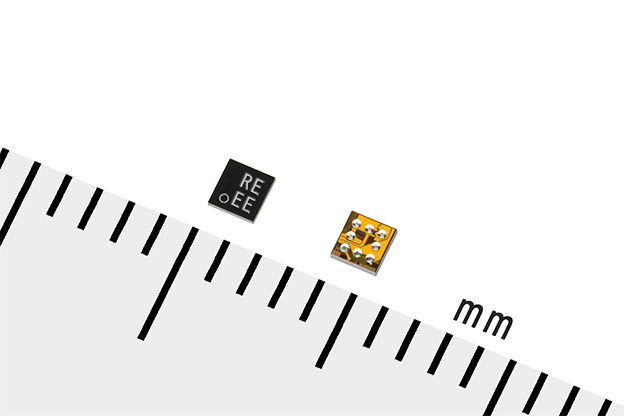Ricoh Electronic Devices launched RP516 and RP517 series, buck (step-down) DC/DC converters featuring ultra-low output voltage (0.3 V to 1.2 V) and ultra-low quiescent current (typically 0.3 µA). The new converters are designed for IoT systems.

As the IoT market expands, IoT devices with sensors, MCUs, communication ICs, etc. are required to correspond to low voltage to prolong the operating time of the battery. The RP516/RP517 achieve a low output voltage range of 0.3 V to 1.2 V configurable in 0.1 V step, an input voltage range of 1.8 V to 5.5 V, and ultra-low quiescent current of 0.3 µA.
The new RP516/RP517 will facilitate customers to construct IoT devices with low operating voltage and long operating time. Output currents of RP516/RP517 are 100 mA and 300 mA respectively.
The new ICs adopt WLCSP-8-P1, enabling high-density mounting. Additionally, we are developing DFN(PLP)2527-10 (Samples in July 2019) and SOT-89-5 (Samples in September 2019) versions in order to meet various requirements.
Product Features of RP516/ RP517
The RP516/RP517 are DC/DC converters achieving ultra-low output voltage and ultra-low quiescent current, suitable for IoT devices.
- Ultra-low Output Voltage Range:
The output voltage range is configurable from 0.3 V to 1.2 V in 0.1 V step.
- Ultra-low Quiescent Current:
The ultra-low quiescent current of typically 0.3 µA prolongs the operating time of IoT devices.
- Wide Input Voltage Range:
The wide input voltage range of 1.8 V to 5.5 V enables the RP516/RP517 to correspond to various batteries such as coin-shaped batteries, next-generation rechargeable batteries, capacitors, etc. In addition, the input voltage as low as 1.8 V prolongs the operating time of the battery.
- Small Packages and Space-saving Mounting:
The new ICs adopt WLCSP-8-P1 (1.45×1.48×0.4 (max) mm). The small package will contribute to reducing the mounting area. Also, DFN(PLP)2527-10 (2.50×2.70×0.6 (max) mm) and SOT-89-5 versions are under development. The new ICs will become available in various applications.
